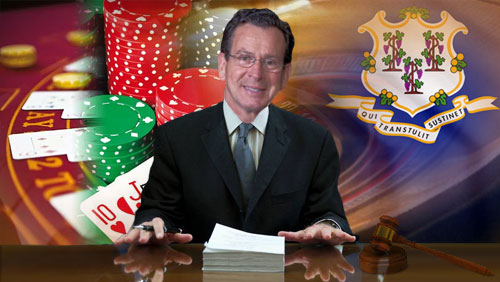Connecticut Gov. Dannel Malloy intends to sign a bill that calls for the state’s two federally recognized Indian tribes to create a multi-step process for the launch of a new jointly operated casino.
 Malloy spokesman Mark Bergman announced that the bill was to be signed on Friday, but the bill was not ready.
Malloy spokesman Mark Bergman announced that the bill was to be signed on Friday, but the bill was not ready.
Under the proposed legislation, the Mohegan and the Mashantucket Pequot tribes would have to prepare a request for proposals from municipalities that are interested in hosting a casino which would compete with gambling venues in neighboring states, particularly Massachusetts’ MGM Springfield.
In March, tribal chiefs announced that their new property is likely to be located along Interstate 91 in the north-central part of Connecticut.
Tribal officials released a joint statement on Friday, expressing their gratitude to Malloy for passing a bill that would protect Connecticut jobs. They added that the tribes would prepare a request for proposal within the next few weeks, working together with the attorney general’s office to make sure that they are following laws closely.
“Competition from gaming in New York and Massachusetts will impact our state, and we appreciate the support from our government partners,” said the tribes’ two chairmen.
State Sen. Tim Larson, a strong supporter of the bill, said it would require the Mohegan and the Mashantucket Pequot tribes to report monthly on their progress with the casino project.
Once an agreement between the tribes and the host community is reached, it would need to be reviewed by the Connecticut attorney general to ensure that it does not violate the state’s existing deal with the Mohegans and the Mashantucket Pequots. Under the current compact, the tribes are to contribute 25% of their slot machine revenue to the state.
The potential new casino could not open before the law is amended to permit casino gambling. In addition, the project needs to be considered by the federal Bureau of Indian Affairs.
The bill’s passage, quite expectedly, met some strong opposition. Sen. John Kissel said that it was a shame that Malloy would sign the proposed legislation, saying that the residents of north-central Connecticut do not want a casino to be opened there and that even if a new venue opens doors, the state is not likely to regain the gambling revenue it loses to competition from neighboring states.